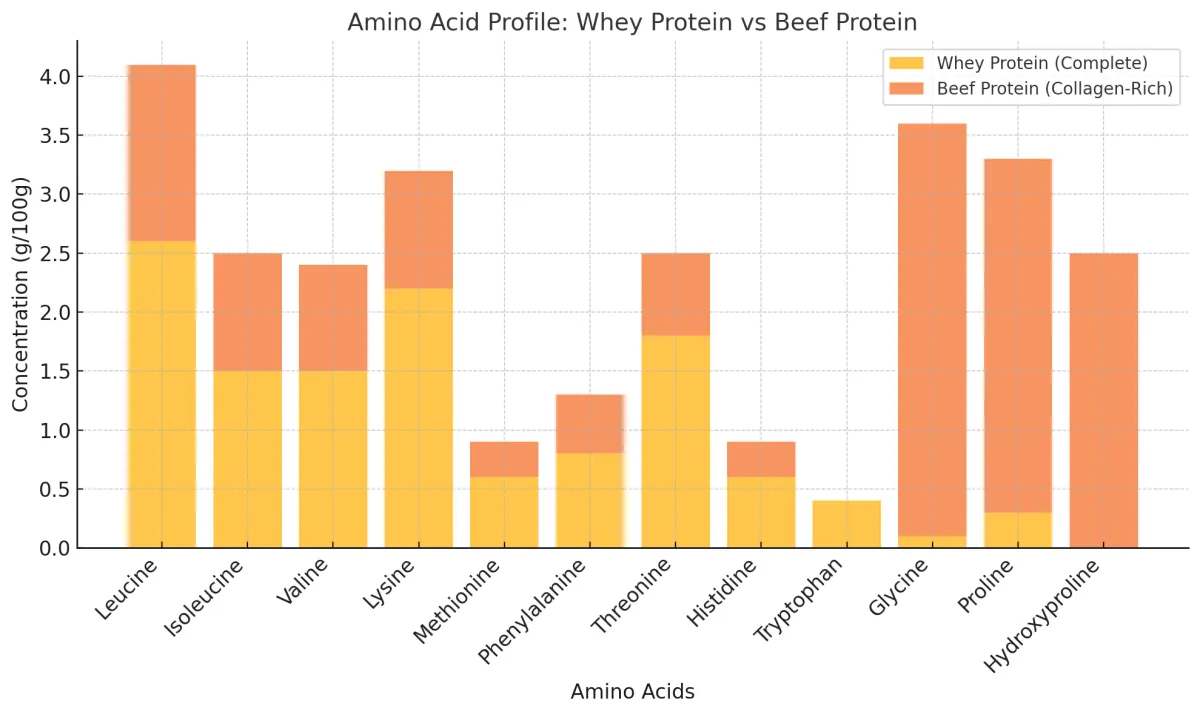
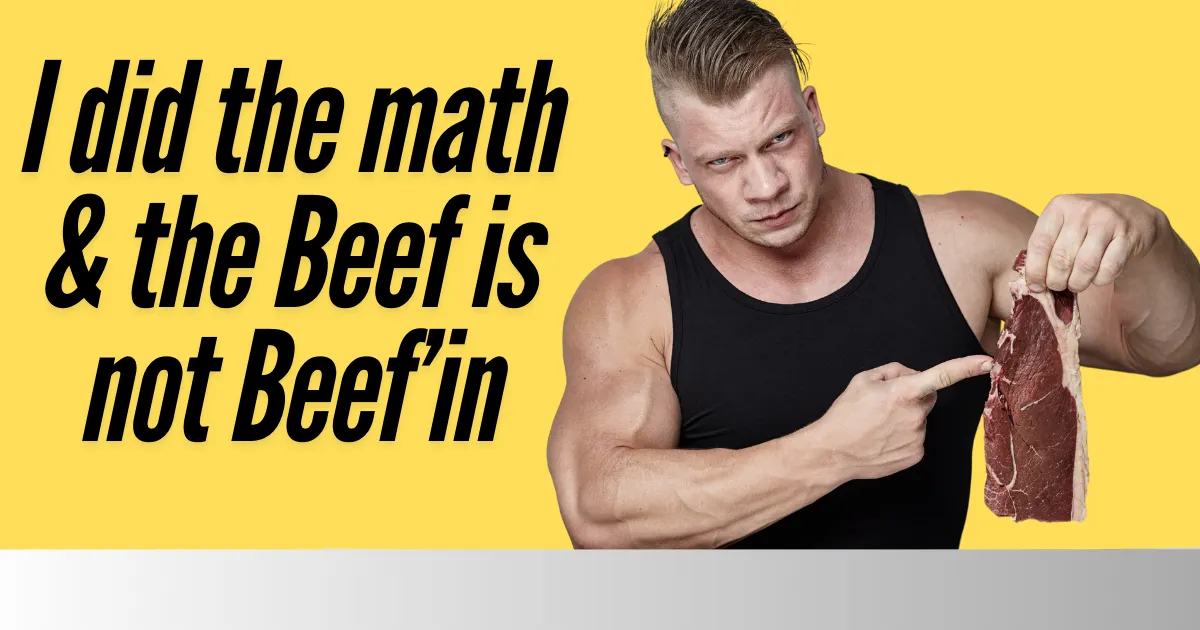

The Truth About Beef Protein: Is It Really Steak in a Powder?
An insight look into Beef Protein Isolate vs. Whey Protein Isolate
ProBody Warehouse™ your local supplement shop with amazing offers, Valid until 01/31/2025
The topic of beef protein can be a bit misleading and I realized that when I had an encounter with a customer in one of our supplement shops.
The customer came in looking for unflavored beef protein; however, we only carried chocolate flavored beef protein. So I suggested he get the unflavored bovine collagen, which is primarily derived from cow skin. He did not want, he said that he doesn’t want collagen as it’s not a complete protein- He was right, collagen is not a complete protein. (I’ll get into the details of complete and incomplete protein a bit further down this article.)
Anyways, I realized that he’s under the impression that beef protein isolate is derived from powdered steak meat. I don’t blame him, I remember the beef protein ads with the guy biting into raw meat with the headline “got meat.” I guess that could be seen as misleading marketing methods.
I tried to explain to him that the beef protein isolate is indeed collagen, but he insisted that it’s a complete protein derived from pure meat.
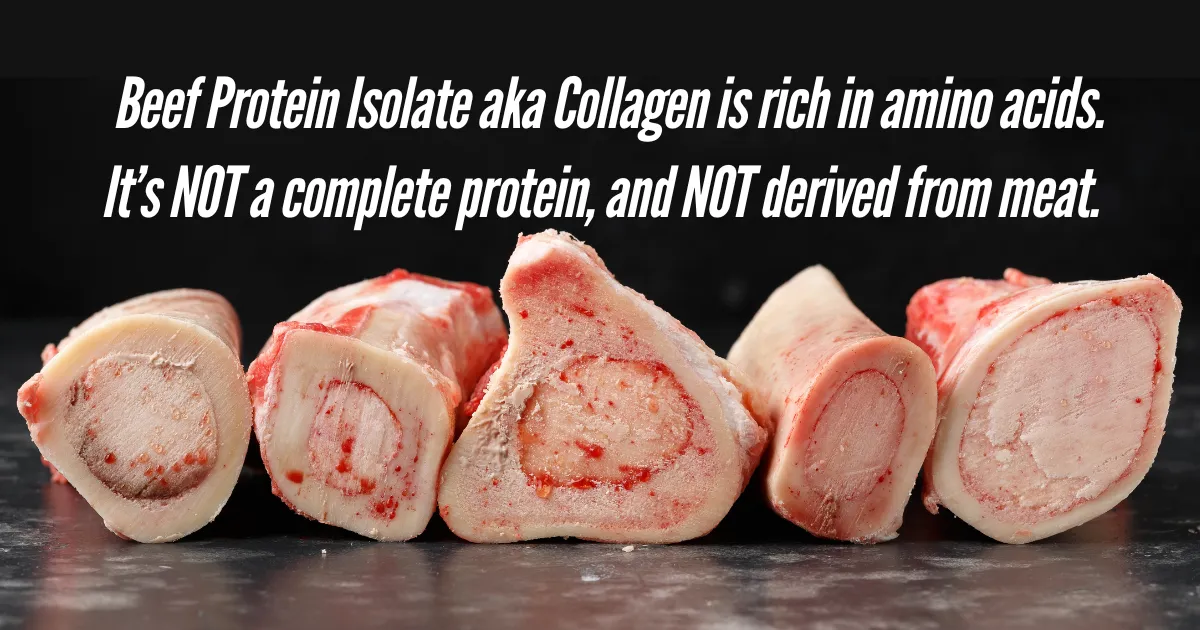
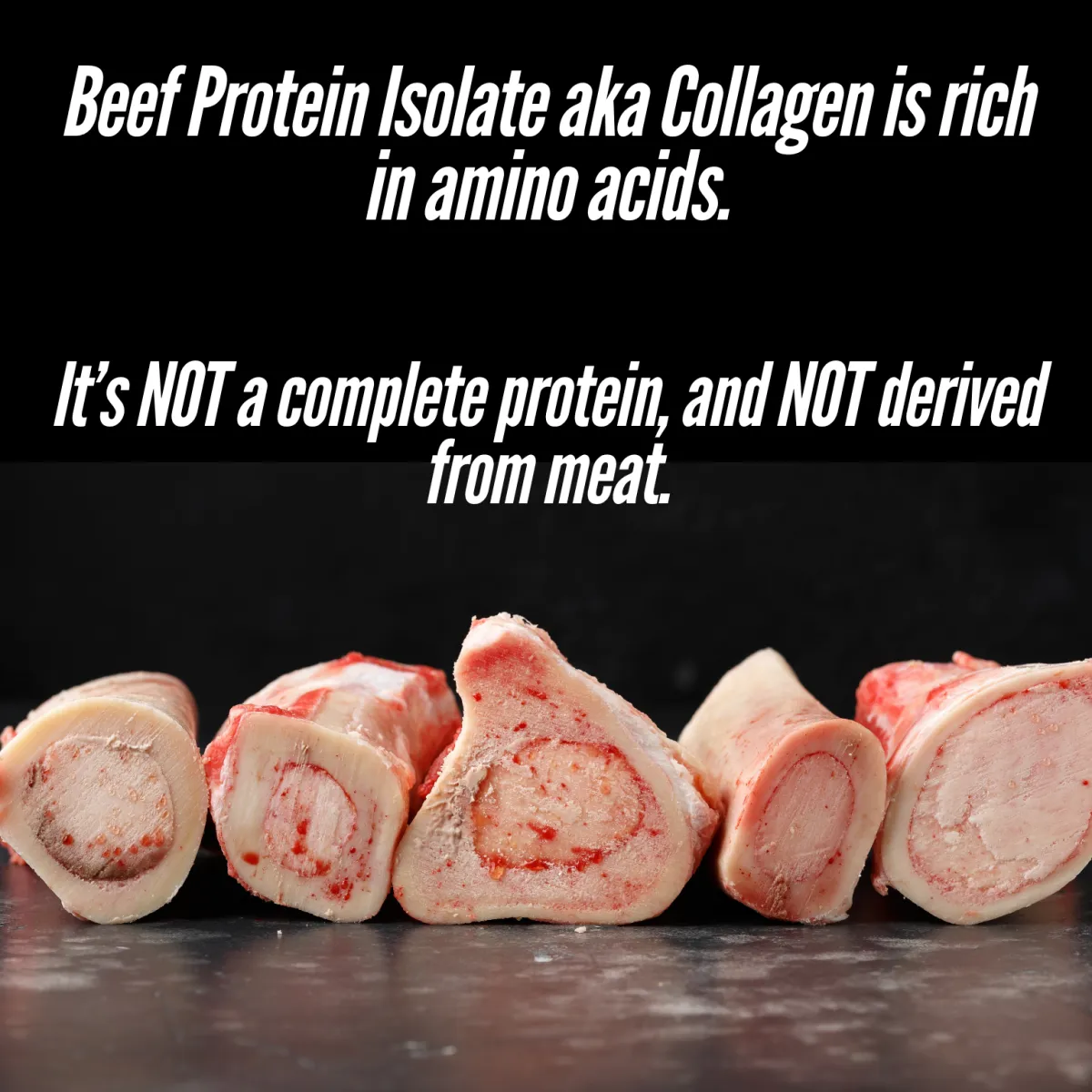
Not all amino acids are created equal. Your muscles need certain amino acids to trigger protein synthesis, while your skin and connective tissue needs more of another amino acid.
What is Beef Protein Isolate made of, and why is it easier to digest than dairy based protein? As mentioned earlier, beef protein is not made from pure meat, instead it’s derived from parts of the cow, including:
Connective Tissue
Bone Marrow
Cow Skin
While these items sound less appealing, these sources are rich in collagen and extremely beneficial for you. Collagen is known to promote healthy skin, joint support, hair, skin & nail health. It’s basically protein for your connective tissue, whereas the actual steak meat would be a complete protein helping with muscle maintenance and growth
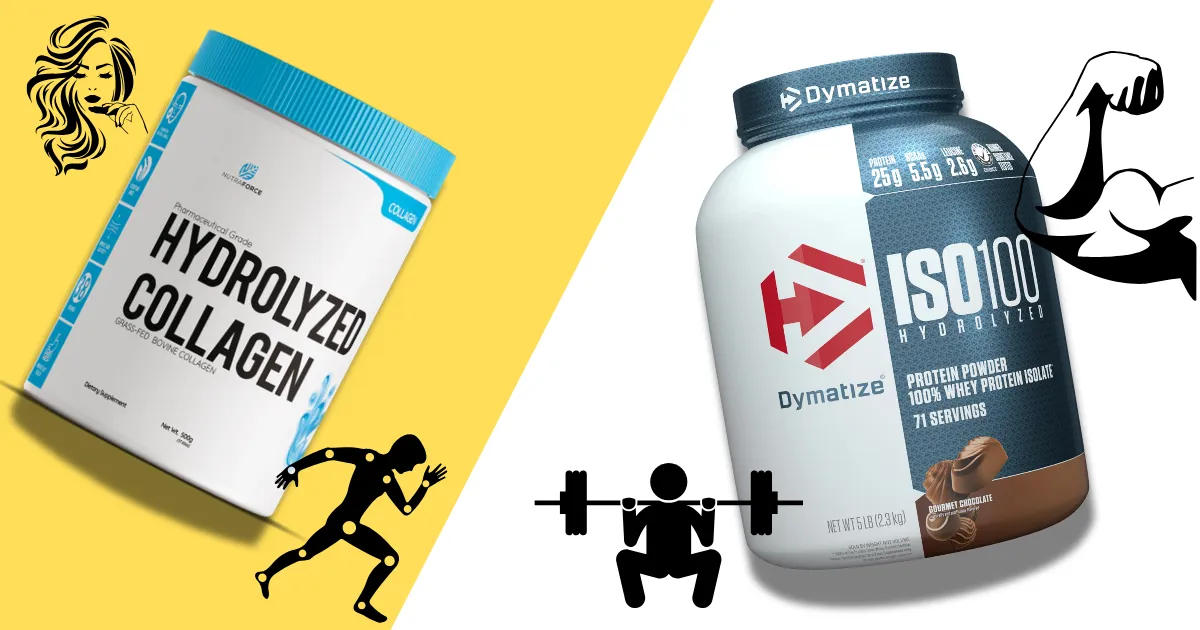
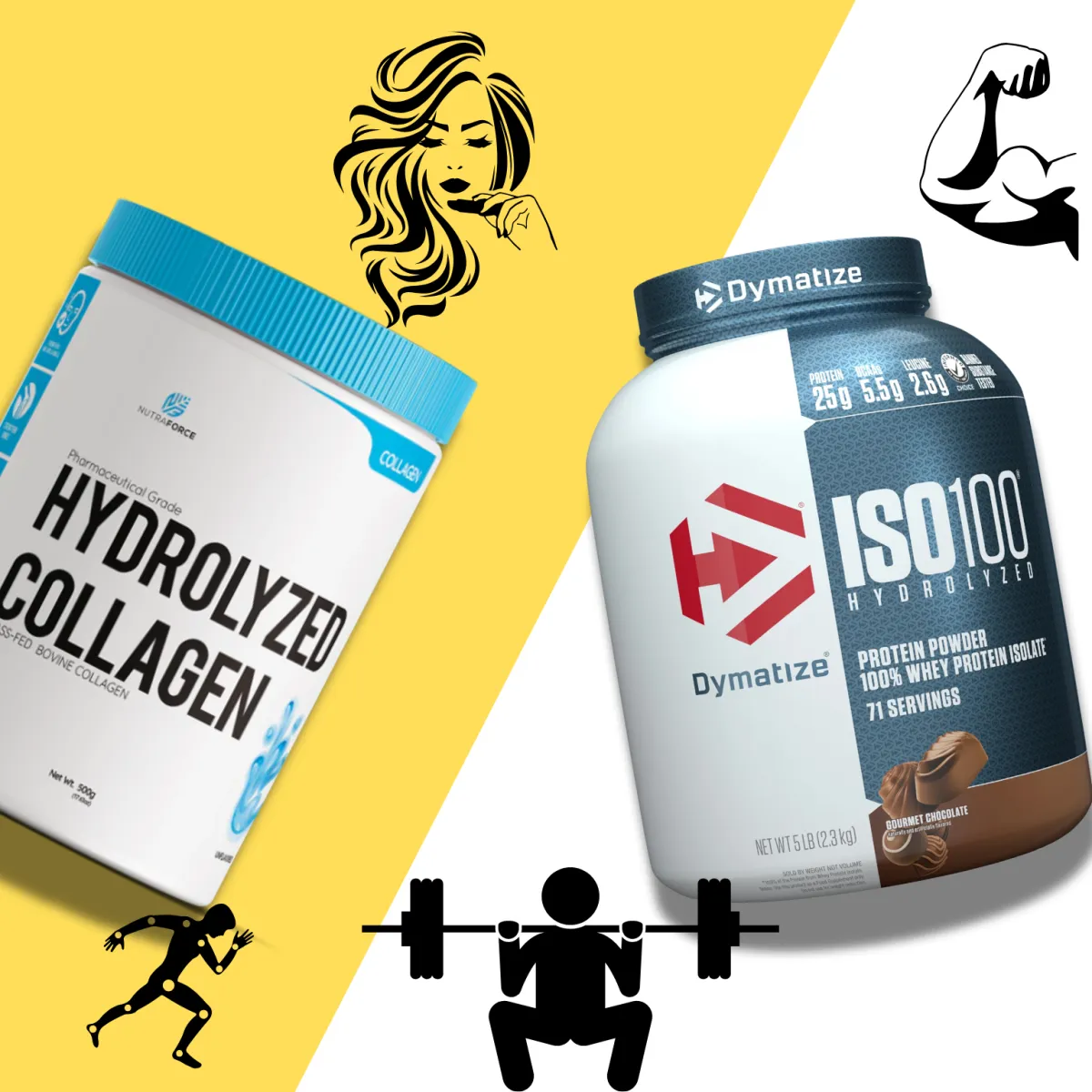
Collagen contains crucial amino acids to help with connective tissue, hair, skin and nails strength. Whey protein has essential amino acids to promote protein synthesis.
What’s the deal with complete and incomplete protein?
What makes a protein complete? A protein is a chain of amino acids, but in order to be considered a “complete protein,” it required all essential amino acids to be complete, collagen is missing 1 amino acids (tryptophan), which makes it incomplete. Does that mean that collagen is useless for building muscle? Of course not, but looking at the amino acids distribution of both, you’ll see that each item has its strength and weaknesses.
Beef protein will often times advertise "higher amino acid content than whey," which is true, when it comes to the to the amino acids that are not as essential for muscle building, but are crucial for connective tissue and skin health.
The chart above highlights the key differences in amino acid content between whey protein and beef protein. While whey protein provides a balanced and complete amino acid profile, beef protein is higher in collagen-rich amino acids like glycine, proline, and hydroxyproline, but as mentioned above lacks other essentials like tryptophan and a lower content of leucine – the key amino acid to trigger protein synthesis.
Is Whey Protein Better than Beef Protein?
Your objective will dictate which one is more important for you, you certainly need a complete protein to build and maintain muscle, but you also need protein for hair, skin, nails, and connective tissue. If you can’t meet your daily protein intake and you are focused on muscle growth then a complete protein would be a better source for you, it can be a plant-based protein or egg-based protein- it does not have to be from a dairy based source.
Why does beef isolate digest easier than Whey protein?
A notable thing the customer mentioned was that he has a hard time digesting whey protein, therefore, he’s been consuming the beef protein isolate as it’s easier on his stomach. One of the reasons dairy based products may not digest as well is the fact that over time we lose essential enzymes that help us digest lactose, it’s not a lactose intolerance, rather your body is struggling to break down that molecule, leaving you bloated and giving you some type of stomach discomfort. With beef protein, you’re putting a smile on your stomachs face, since collagen is a major source of nutrients for your gut. It helps strengthening your stomach lining and is extremely easy to digest.
The Proof Is In The Price Of Beef Protein!
How can I be so certain that beef protein is not coming from the meat, rather the connective tissue? Well look at the price. Beef protein isolate is significantly cheaper than whey protein isolate. Check your local grocery store, beef is expensive as hell. Trust me, if it was raw meat converted into powder, it would be significantly more in price.
**Pro Tip: if you see beef protein at an extremely high price-point, e.g. more than $12/lb, then run!
Key Takeaway on Beef Protein Isolate Vs Whey Protein Isolate
If your goal is muscle growth and recovery, stick with whey protein, or other complete protein sources like egg protein and plant protein. Beef protein, while beneficial for its collagen content, is better suited for skin, joint, and hair health rather than building muscle.
Don’t let the marketing fool you into thinking it’s powdered steak—it’s not. If you found this helpful, share it with a friend, and feel free to drop your questions in the comments! Let’s stick to the facts and make informed choices about our supplements.
FAQ
BEEF PROTEIN VS WHEY PROTEIN
Does Beef Protein Replace Whey Protein Powder?
No, Beef protein aka collagen is not a complete protein and does not replace whey protein or any other complete source of protein.
Can I mix Beef Protein with Whey Protein?
Yes, you may mix both protein sources in one shake.
Is Beef Protein a good Post Workout?
Yes, however, beef protein is low in the key amino acid leucine, which is a crucial amino acid to promote protein synthesis. In addition, your muscles will require a complete source of protein for proper recovery.
What can I take instead of Whey Protein?
There are other protein sources outside of dairy based whey protein that will give you a complete amino acid profile, including egg protein and plant protein.
© 2024 ProBody Warehouse - All Rights Reserved.
**These Statements have not been evaluated by the Food and Drug Administration. This product is not intended to diagnose, treat, cure, or prevent any disease.
Text Us Today If you have Questions

